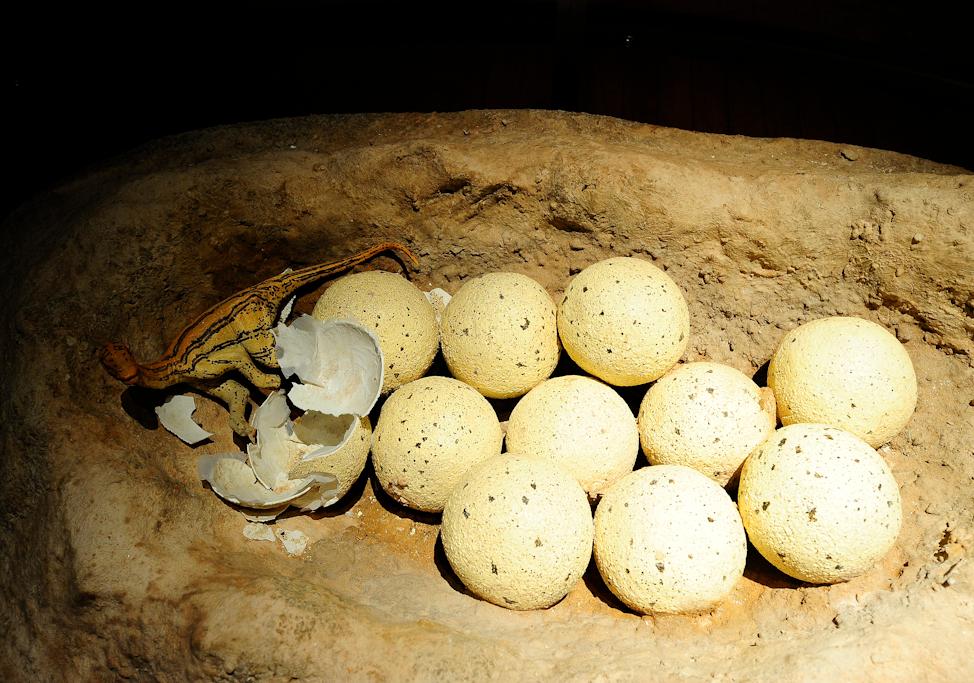Oldest dinosaur nests found in South Africa
A mock sauropod’s nest is on display at ‘The World’s Largest Dinosaurs’ exhibition, an exhibition exploring the biology of sauropods, a group of the largest dinosaurs that ever walked the Earth, during a media preview at the American Museum of Natural History in New York, April 13, 2011.
JOHANNESBURG, South Africa — The oldest dinosaur nests ever found have been excavated in South Africa, providing a glimpse into dinosaur nesting behavior.
The ancient nesting site of the prosauropod dinosaur known as the Massospondylus was uncovered at Golden Gate Highlands National Park, in South Africa's Free State.
The South African Press Association (SAPA) reported that paleontologists found clusters of dinosaur eggs, many with embryos, along with tiny dinosaur footprints at the 190-million-year-old nesting site.
More from GlobalPost: Oldest "art studio" discovered in South Africa's Blombos Cave
The fossils were reportedly found in sedimentary rocks that date from the early Jurassic period. The Massospondylus was a relative of the giant sauropods from the Jurassic and Cretaceous periods.
Researchers said this was the oldest known evidence showing that dinosaur hatchlings remained at the nesting site long enough to at least double in size.
The distribution of nests showed that the dinosaurs had returned repeatedly to the site, and laid their eggs in groups. At least 10 nests were found, with each one containing up to 34 round eggs, SAPA said.
The BBC reported that the newly excavated nesting site is 100 million years older than the previous oldest site.
The findings are described in an article published in the journal Proceedings of the National Academy of Sciences.
More from GlobalPost: South Africa's Kruger park battles rhino poaching (VIDEO)
The story you just read is accessible and free to all because thousands of listeners and readers contribute to our nonprofit newsroom. We go deep to bring you the human-centered international reporting that you know you can trust. To do this work and to do it well, we rely on the support of our listeners. If you appreciated our coverage this year, if there was a story that made you pause or a song that moved you, would you consider making a gift to sustain our work through 2024 and beyond?
